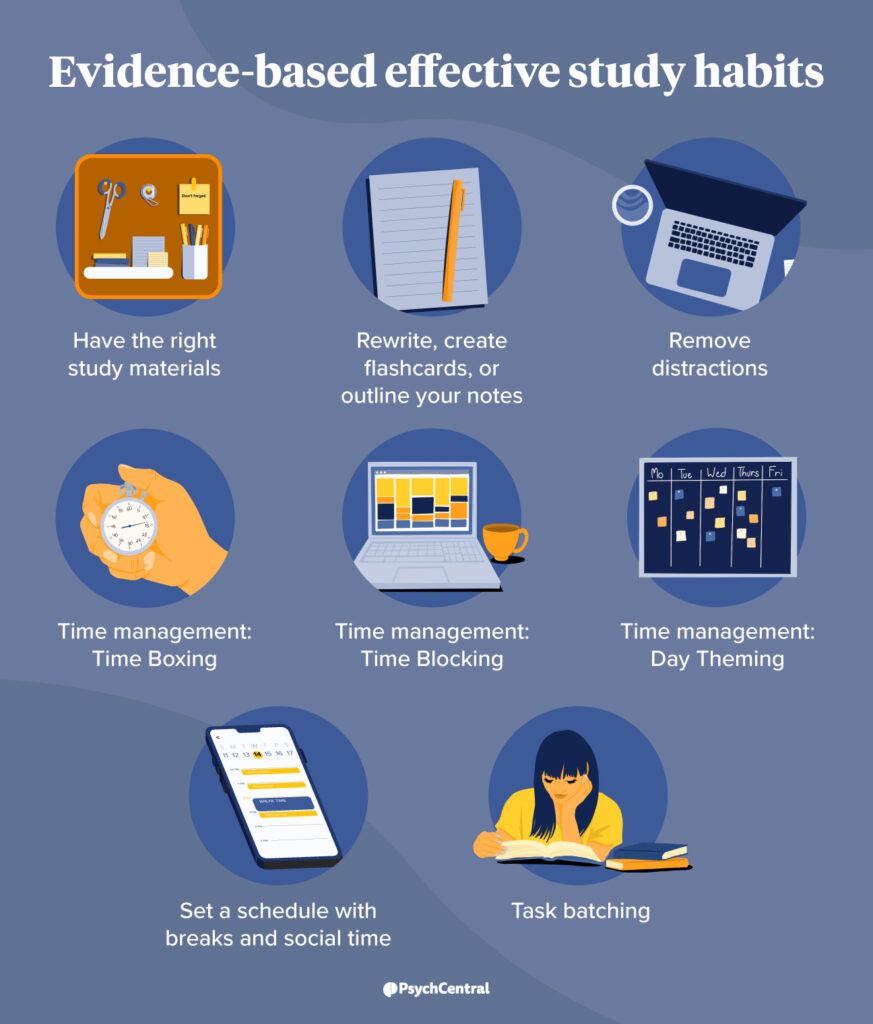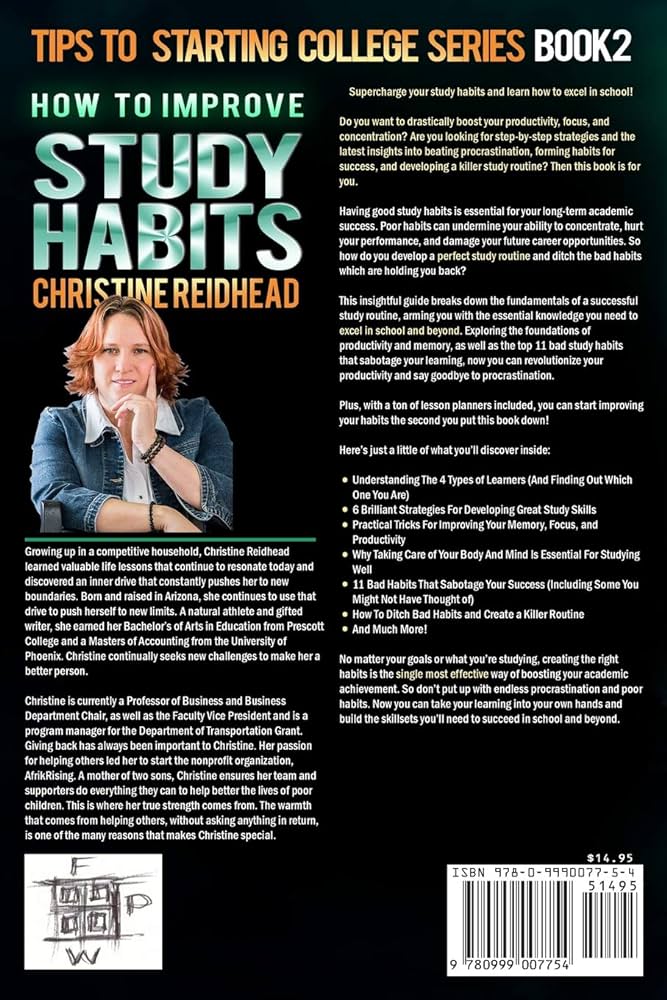Study Tips for College: Effective Strategies
College students can study effectively by planning ahead, finding their learning style, and taking regular breaks. Effective time management involves prioritizing tasks and maintaining an organized studying schedule.
Utilize study techniques such as the Feynman Technique and spaced repetition to improve retention and understanding of the material. It’s crucial to create a productive study environment and reward yourself for achieving study goals to stay motivated. Asking questions and changing study scenery can also enhance learning.
Additionally, maintaining a positive attitude while studying and seeking help when needed are essential for academic success. These strategies can help college students prepare for exams and excel in their coursework, leading to a more productive and enjoyable academic experience.
Credit: www.flickr.com
The Importance Of Effective Study
To succeed in college, it is crucial to understand the importance of effective study strategies. Prioritizing tasks, taking breaks, staying positive, asking questions, and changing your surroundings can greatly enhance your study experience and improve your academic performance.
Benefits Of Effective Study Strategies
Understanding the importance of effective study strategies is crucial for college students. Implementing these strategies can have numerous benefits, helping students to optimize their learning potential.
Firstly, effective study strategies can enhance retention and understanding of important concepts. By utilizing techniques such as active learning, spaced repetition, and quizzing oneself, students can reinforce their knowledge and solidify their understanding of the material. This can lead to better performance on exams and assignments.
Secondly, effective study strategies can improve time management skills. Prioritizing tasks, breaking down large assignments into smaller, manageable chunks, and creating a study schedule can help students stay organized and avoid procrastination. This not only reduces stress but also ensures that students have enough time to thoroughly review and comprehend the material.
Furthermore, effective study strategies can boost motivation and confidence. When students see positive results from their efforts, it encourages them to continue their hard work. By employing various study techniques tailored to their learning style, students can feel more confident in their abilities and approach their studies with a positive mindset.
Common Challenges Faced By College Students
College students face various challenges when it comes to studying effectively. These challenges can hinder their academic success if not addressed properly. Here are some common challenges that students often encounter:
- Procrastination: Students may struggle with delaying their study sessions, leading to last-minute cramming and an inefficient use of time.
- Distractions: With the abundance of technological devices and social media platforms, students may find it challenging to stay focused on their studies.
- Overwhelming Workload: College courses can be demanding, and students may struggle to balance multiple assignments, projects, and exams.
- Lack of Time Management Skills: Students may have difficulty allocating their time effectively, resulting in inadequate preparation for exams or insufficient time for studying.
How Effective Study Strategies Can Boost Success
Implementing effective study strategies can significantly enhance a student’s chances of academic success. Here’s how:
- Improved Retention: By employing techniques such as active learning, mnemonic devices, and concept mapping, students can enhance their retention and understanding of the material.
- Enhanced Time Management: Effective study strategies, such as creating a study schedule, breaking down tasks, and utilizing productivity techniques, can help students manage their time more efficiently.
- Motivation and Confidence: When students see the positive results of their efforts through the implementation of effective study strategies, it boosts their motivation and confidence, leading to improved performance.
- Reduced Stress: By breaking down assignments into smaller parts and creating a study plan, students can reduce the stress associated with overwhelming workloads and last-minute cramming.
In conclusion, understanding the importance of effective study strategies is crucial for college students. By acknowledging the benefits these strategies provide, recognizing common challenges, and implementing effective techniques, students can significantly boost their chances of success in their academic endeavors.
Identify Your Learning Style
Understanding your learning style is crucial for academic success in college. Once you identify how you best absorb and retain information, you can tailor your study approach to match your unique learning preferences and strengths. Knowing yourself and recognizing your learning style is the first step towards improving your study habits and achieving better results in your college education.
Understanding Different Learning Styles
People have diverse ways of processing and understanding information. Some individuals thrive in visual learning environments, while others excel when they can listen to the material. Understanding different learning styles, including visual, auditory, reading/writing, and kinesthetic, can help you recognize how you learn best.
Methods To Identify Your Learning Style
Identifying your learning style can be accomplished through various methods. Observing how you prefer to take in information, whether through visualization, listening, reading, or hands-on experiences, can give you insight into your learning tendencies. Taking online quizzes and assessments designed to determine your learning style can also provide valuable insights.
Tailoring Your Study Approaches Based On Your Learning Style
Once you have identified your learning style, tailoring your study approaches to align with it is paramount. Visual learners may benefit from using color-coded notes, diagrams, or mind maps, while auditory learners might find it helpful to record lectures and listen to them. Reading/writing learners can benefit from creating detailed written notes, and kinesthetic learners may find hands-on activities or study breaks to be effective.
Develop Effective Study Habits
Develop effective study habits in college by prioritizing tasks, taking breaks, staying positive, asking questions, and changing your scenery. Avoid cramming and plan ahead to effectively manage your time. Practice makes perfect, so take practice tests, watch documentaries, make flashcards, join study groups, create study guides, and utilize memorization techniques to ace your exams.
Developing effective study habits in college is crucial for academic success. Creating a study schedule is an essential step to manage time efficiently and stay organized. With a clear schedule in place, students can allocate specific times for each subject and task, ensuring a balanced approach to studying. This helps to avoid last-minute cramming and reduces stress during exam periods. By prioritizing tasks and adhering to a study timetable, students can maintain a healthy work-life balance.
Utilizing Active Studying Techniques
Utilizing active studying techniques is a key aspect of developing effective study habits. Engaging in active studying techniques such as concept mapping, teaching others, and practicing retrieval through quizzes and flashcards enhances information retention and understanding. Moreover, employing active learning methods encourages critical thinking, problem-solving, and application of knowledge, thereby reinforcing the learning process.
Effective Note Taking Strategies
Developing effective note-taking strategies is fundamental for optimizing study habits. Effective note-taking strategies involve using abbreviations, symbols, and visual aids to summarize information, making it easier to review and comprehend later. Additionally, employing the Cornell method or mind mapping can help in organizing and synthesizing lecture materials, fostering better understanding and retention of key concepts.
Overall, by implementing these essential components of effective study habits, college students can enhance their learning experience and achieve academic excellence.

Credit: psychcentral.com
Maximize Productivity With Time Management
Maximize productivity in college by implementing effective time management strategies. Prioritize tasks, stay organized, and take regular breaks to maintain focus and motivation. By creating a productive study space and seeking help when needed, you can enhance your learning and achieve better results in your college studies.
Time management is a fundamental skill that can greatly enhance your productivity as a college student. By effectively managing your time, you can prioritize tasks, avoid feeling overwhelmed, and ensure that you make the most of your study sessions. In this section, we will explore three essential time management strategies that will help you maximize your productivity: The Importance of Prioritizing Tasks, Utilizing Time Blocking Techniques, and Taking Regular Breaks for Optimal Focus.
The Importance Of Prioritizing Tasks
Prioritizing tasks is crucial when it comes to effective time management. By assigning importance levels to your assignments, projects, and study tasks, you can ensure that you focus your energy on the most critical and time-sensitive tasks first. This avoids the risk of wasting valuable time on less important tasks, allowing you to accomplish more in a shorter amount of time.
Utilizing Time Blocking Techniques
One effective way to manage your time is by using time blocking techniques. Time blocking involves breaking down your day into distinct blocks of time dedicated to specific tasks or activities. By mapping out your schedule in advance and allocating specific time slots for studying, attending classes, completing assignments, and taking breaks, you can create a well-structured routine that maximizes efficiency and minimizes distractions.
Here is an example of how you can use time blocking to optimize your productivity:
| Time | Activity |
|---|---|
| 8:00 AM – 9:00 AM | Study for Biology Exam |
| 9:00 AM – 10:30 AM | Attend Math Lecture |
| 10:30 AM – 11:00 AM | Take a Short Break |
| 11:00 AM – 12:00 PM | Work on History Essay |
| 12:00 PM – 1:00 PM | Lunch Break |
| 1:00 PM – 3:00 PM | Continue Working on History Essay |
Taking Regular Breaks For Optimal Focus
While it may seem counterintuitive, taking regular breaks during your study sessions can actually improve your productivity and focus. Studies have shown that the brain has a limited attention span, and extended periods of intense concentration can lead to mental fatigue. By incorporating short breaks into your study routine, you can give your brain the opportunity to recharge and rejuvenate, enabling you to maintain optimal focus and engagement throughout your study sessions.
During your breaks, try engaging in activities that help you relax and clear your mind. This could include going for a short walk, doing some stretching exercises, or listening to music. The key is to give yourself a mental and physical break from studying, allowing you to return to your tasks with renewed energy and focus.
By implementing these time management strategies – prioritizing tasks, utilizing time blocking techniques, and taking regular breaks – you can significantly enhance your productivity as a college student. By managing your time effectively, you can achieve more in less time, reduce stress, and ultimately achieve academic success. So, start implementing these techniques today and discover the transformative power of time management in your college journey.
Improve Retention And Recall
When it comes to studying in college, improving retention and recall is essential for success. Implementing evidence-based study techniques, utilizing memory techniques and mnemonics, and taking advantage of practice tests and quizzing are all effective strategies that can enhance your ability to retain and recall information.
Implementing Evidence-based Study Techniques
Implementing evidence-based study techniques is crucial for optimizing learning and retention. Some effective techniques include:
- Testing Effect: The act of retrieving information through frequent testing is proven to enhance long-term retention.
- Learning: Understanding the material thoroughly by actively engaging with the content and making connections.
- Dual-Coding Theory: Integrating visual and verbal information to enhance memory.
- Spaced Repetition: Distributing study sessions over time for better retention.
Utilizing Memory Techniques And Mnemonics
Memory techniques and mnemonics can significantly improve retention and recall. Some helpful strategies include:
- Feynman Technique: Explaining concepts in simple terms to enhance understanding and memory.
- Spaced Repetition: Reviewing information at intervals to reinforce memory.
- Mind Mapping: Creating visual diagrams to organize and connect ideas.
- Flashcards: Using flashcards to practice recall and reinforce important information.
The Role Of Practice Tests And Quizzing
Practice tests and quizzing play a vital role in improving retention and recall. Some benefits of incorporating these techniques into your study routine include:
- Active Recall: Retrieving information during testing strengthens memory and enhances retention.
- Identifying Knowledge Gaps: Practice tests help pinpoint areas where further review and studying are needed.
- Increased Confidence: Regular quizzing builds confidence and helps reduce test anxiety.
- Reinforcement of Key Concepts: Repeated exposure to important information through testing solidifies understanding and memory.
By implementing evidence-based study techniques, utilizing memory techniques and mnemonics, and incorporating practice tests and quizzing into your study routine, you can greatly improve your retention and recall abilities. These strategies will not only enhance your academic performance but also make your college learning experience more efficient and enjoyable.

Credit: www.amazon.com
Conclusion
Prioritizing tasks, staying organized, and spacing out studying are crucial elements for effective time management in college. Additionally, taking breaks, staying positive, asking questions, and changing your scenery can enhance your study routine. Remember to practice self-care and reward yourself for your hard work.
By implementing these study tips, you’ll be on your way to academic success in college.








